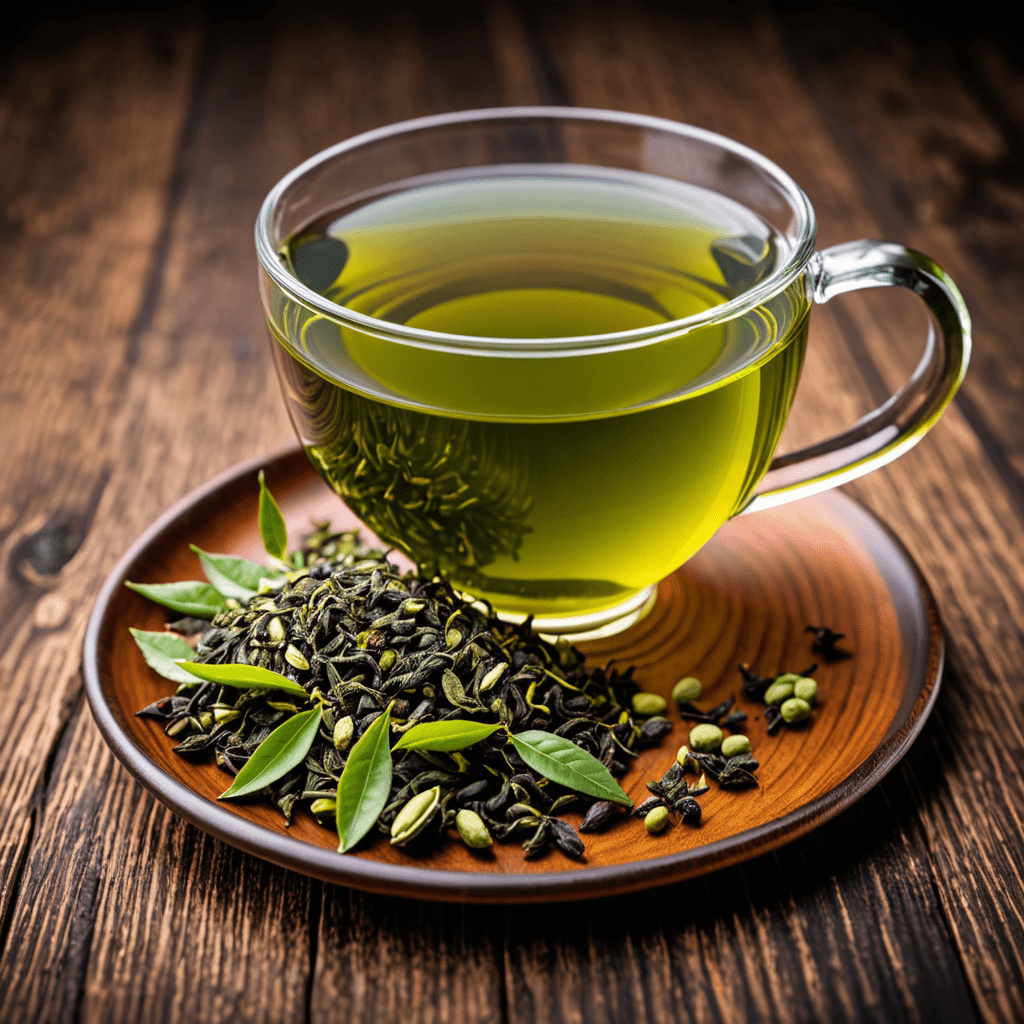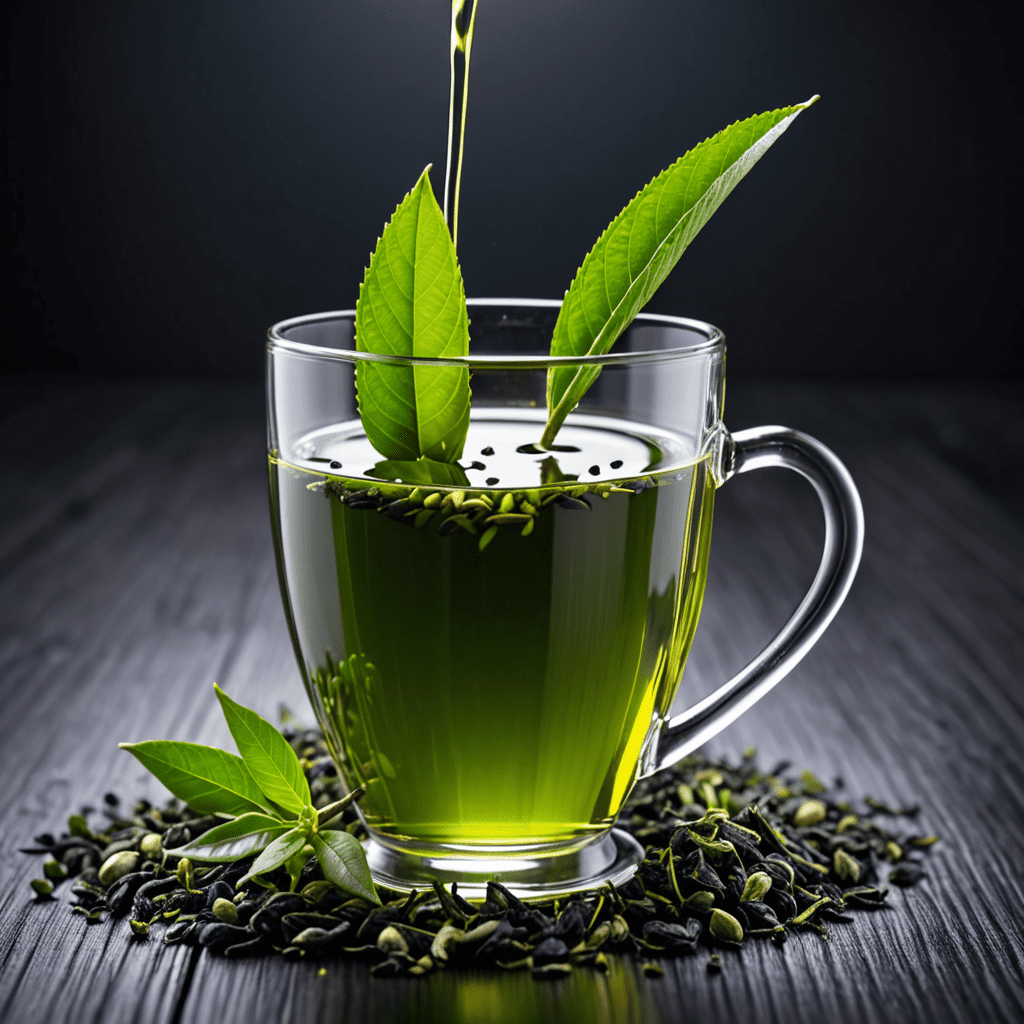“The Ultimate Guide to Green Tea for Thyroid Health”
Introduction
Green tea is a popular beverage known for its numerous health benefits. Among its many potential advantages, green tea has been suggested to have a positive impact on thyroid health. The thyroid gland plays a crucial role in regulating the body’s metabolism, and any imbalance can lead to various health issues. In this guide, we will explore the different types of green tea and discuss which ones may be beneficial for thyroid health.
Understanding the Thyroid
Before we dive into the specific types of green tea, it’s important to understand the thyroid and its functions. The thyroid gland is located in the neck and produces hormones that regulate metabolism, energy levels, mood, weight, and many other bodily functions. When the thyroid is not functioning properly, it can result in conditions such as hypothyroidism or hyperthyroidism.
The Benefits of Green Tea for Thyroid Health
Green tea contains several bioactive compounds that have been linked to potential health benefits. One such compound is epigallocatechin-3-gallate (EGCG), a type of catechin that has been shown to have anti-inflammatory and antioxidant properties. These properties may help reduce inflammation in the thyroid gland and potentially improve thyroid function.
Types of Green Tea
Not all green teas are created equal when it comes to thyroid health. Some varieties may be more beneficial than others due to differences in processing and chemical composition. Here are a few types of green tea that are commonly consumed:
1. Matcha Green Tea
Matcha green tea is a powdered form of green tea that is known for its vibrant green color and rich flavor. It is made by grinding specially cultivated tea leaves into a fine powder. Matcha contains higher concentrations of beneficial compounds, including EGCG, compared to other types of green tea. This makes it a potentially excellent choice for thyroid health.
2. Sencha Green Tea
Sencha green tea is the most commonly consumed variety of green tea in Japan. It is made from young tea leaves and buds, which are steamed and then dried. Sencha has a milder flavor compared to matcha and contains a moderate amount of beneficial compounds. While it may still offer some benefits for thyroid health, its concentration of EGCG may be lower compared to matcha.
3. Gunpowder Green Tea
Gunpowder green tea is a Chinese green tea that gets its name from the way the leaves are rolled into small pellets. This unique shape helps to retain the tea’s freshness and flavor. Gunpowder green tea has a stronger taste and aroma compared to other green teas, and it may contain a moderate level of beneficial compounds for thyroid health.
How to Brew Green Tea for Optimal Thyroid Health
To maximize the potential thyroid benefits of green tea, it’s important to brew it properly. Here are some tips for brewing green tea:
1. Use Filtered Water
Start with fresh, filtered water to brew your green tea. Chlorinated water or water with impurities may affect the taste and quality of the tea.
2. Optimal Water Temperature
Green tea is delicate and can easily become bitter if brewed at too high a temperature. The ideal water temperature for green tea is around 160°F to 180°F (70°C to 82°C).
3. Steeping Time
The recommended steeping time for green tea is generally 2 to 3 minutes. Steeping for longer may result in a more bitter taste.
Frequently Asked Questions (FAQ)
Q: Can green tea cure thyroid problems?
A: Green tea should not be considered a cure for thyroid problems. While it may have potential benefits, it is not a substitute for medical treatment. It is always important to consult with a healthcare professional for proper diagnosis and treatment of thyroid conditions.
Q: Can green tea interfere with thyroid medication?
A: Green tea contains compounds that may interact with certain medications, including thyroid medication. It is recommended to consult with a healthcare professional to determine if green tea consumption is safe for you, especially if you are taking any medications.
Q: How much green tea should I drink for thyroid health?
A: There is no specific recommended dosage for green tea consumption for thyroid health. It is generally safe to consume 2 to 3 cups of green tea per day. However, individual tolerance and sensitivity may vary, so it’s best to listen to your body and adjust your consumption accordingly.
Q: Are there any side effects of drinking green tea for thyroid health?
A: While green tea is considered safe for most people, excessive consumption may lead to side effects such as insomnia, irritability, stomach upset, or increased heart rate. It is important to consume green tea in moderation and monitor your body’s response.
In conclusion, while green tea holds promise for potential thyroid health benefits, it should not replace traditional medical treatment. The best green tea for thyroid health may vary depending on personal preferences and individual circumstances. As always, it’s important to consult with a healthcare professional for personalized advice.



